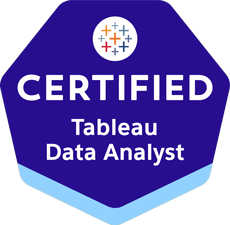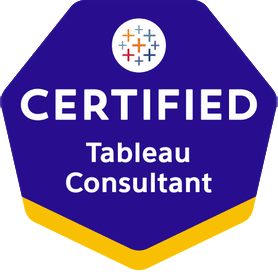Ever undertaken the thrilling task of assembling IKEA furniture? Sounds like a wild ride, right? If your experience echoed mine, the adventure ended with a somewhat stable furniture piece, a few unclaimed screws and a barrage of questions. I really wished for an IKEA fairy godmother.
Translate that scenario to a journey through the landscape of data visualization and Tableau. Who wouldn’t appreciate a handy roadmap, compass, and guide, while trying to make sense of their data. Adding a Tableau consultant to your team, especially a pro like Vizable Insights, tips the game in your favor. You gain the comprehensive package – unparalleled experience, key cost savings, flexibility, and unique insights. Let’s investigate why engaging a data visualization consultant should be on your corporate agenda.
| Criteria | Full-Time Employee | Tableau Consultant |
|---|---|---|
| Experience and Expertise | Varies; may require additional training | Substantial; knowledge is ready to apply |
| Cost Effectiveness | Higher; includes salary, benefits, and training | Lower; payment is only for services rendered |
| Flexibility | Limited; fixed working hours | Greater; adaptable to varied business needs |
| Objective Insights | May be influenced by internal politics | Unbiased; offers fresh perspectives |
Unearthing the Power of Professional Experience and Expertise
You get a professional with the expertise and experience of working with various companies and industries.
You may be familiar with the old adage, ‘experience is the best teacher.’ This principle certainly rings true when it comes to dealing with data visualization in Tableau. A consultant brings a wealth of experience and a high level of expertise to the table. They’ve worked with a range of clients across diverse industries and they understand what works and what doesn’t. The insight gleaned from this breadth of experience can be invaluable to any project and offers a level of knowledge that might be challenging for a new hire to match.
The Financial Equation: Comparing the Costs of Full-Time Tableau Employees and Consultants
Hiring a full-time staff member involves costs like salary, benefits, and training. With a Tableau consultant, you only pay for the service provided, saving a significant amount of money.
Let’s talk numbers. Hiring a full-time employee undeniably brings value, but the costs can rapidly escalate. Consider the salary, medical insurance, retirement packages, paid leave and training expenses. However, partnering with a Tableau data visualization consultant can significantly cut these overheads.
Maximizing Flexibility: The On-Demand Tableau Advantage
A consultant provides flexibility that a full-time employee can’t. They can work on-demand, handle peak periods, and be scaled back when not needed.
Imagine having the capacity to quickly adapt to any changes or fluctuations in your business needs. A Tableau consultant can tackle heavy workloads during busy periods, provide on-demand solutions during critical situations, and fade into the background when their expertise is not required. This allows you to maintain a lean, efficient team, ensuring your resources are always optimally used.
Fresh Outlooks: The Unbiased Approach of a Tableau Consultant
A Tableau consultant can provide an unbiased viewpoint and fresh perspective that can be invaluable in data interpretation and decision making.
Every organization adopts its own methods to transform, analyze and present data. Often, the same questions are asked of stakeholders, and similar visuals resurrected. This established process can inadvertently create biases and assumptions. A consultant, not being tied to the company, can offer an unbiased viewpoint and a fresh perspective. This objectivity can prove invaluable when interpreting data as it ensures that the information is not skewed by internal biases or preconceptions.
In summary, hiring a data visualization consultant can significantly enhance an organization’s ability to understand and leverage its data, leading to better-informed decision-making, efficient resource use, and potentially innovative approaches to data interpretation and presentation.



